
KUALA LUMPUR, Nov 12 — Fresh is always best. Unless it isn’t.
For some things are better the next day. Whether it is a bowl of nourishing white radish and carrot soup or a merry little lamb stew, the hours after the cooking has been completed spin a different sort of magic.
Flavours become more concentrated, more intense. Textures shift from raw and coarse to velvety and sublime. The (new) whole is greater than the sum of its parts.
Overnight oats become creamier and more luscious, every spoonful sliding smoothly on one’s tongue after a good evening’s rest.
The tangy tomatoes and aromatic spices find a balance in a Mexican chilli (or the Tex-Mex variety) that has been given time for its disparate ingredients to get to know one another.
Everything tastes richer, more complex, more magnificent.
This is what a little time will do for you. Some dishes are like some people, who in turn are like fine wine: the best of us age gracefully and become better as the more time passes.
Of course, sometimes it’s just a matter of having made too much food and praying hard that the leftovers will still be edible the next day. (Thank goodness for the fridge and the freezer!)
So when I do need to do a fair bit of cooking on the weekend and have enough remaining to cool, seal and store for the week ahead, I try to make dishes that reheat well and benefit from the time spent in the ice box.
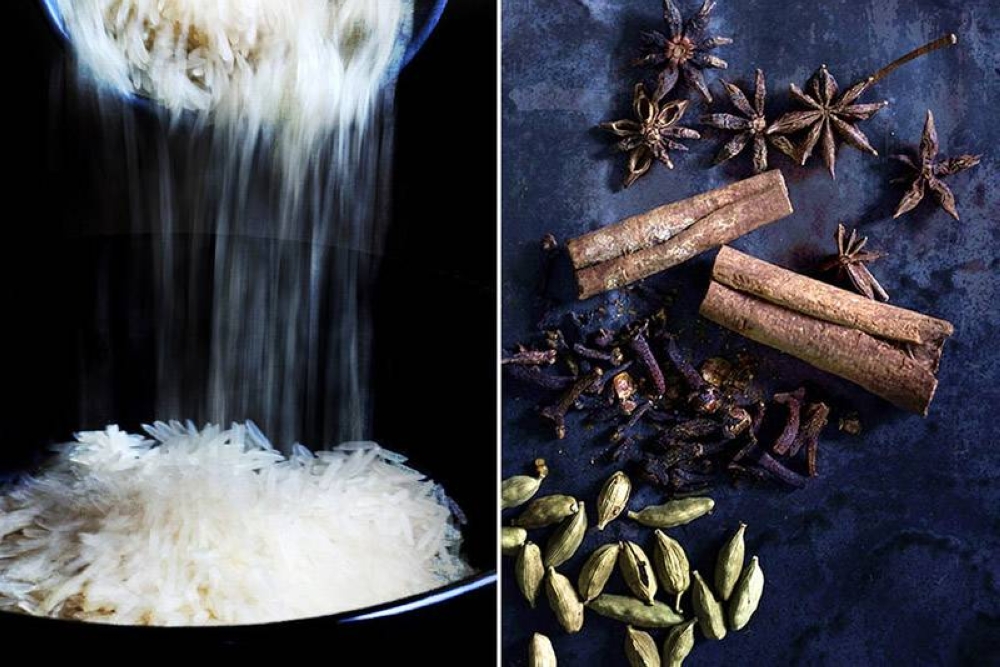
You’re looking for recipes that feature ingredients of a friendly nature, that would look forward to getting to know each other better in a chilled or frozen container. What’s more gregarious than rice and spice, than curry leaves and onion rings?
Now you see where I’m going with this.
It is infinitely easier to cook a big pot of curry and to stir fry a double, triple portion of rice in a wok than it is to go the cautious, miserly route.
So when I want a few days of good leftover eating to look forward to, I will turn to some creamy chicken curry and some golden egg rice.
A confluence of Indian and Chinese culinary traditions, you might call it. A smidgen of belacan (shrimp paste) completes the trinity by making it truly Malaysian.
Simple, hearty food. And better the next day.
CREAMY CHICKEN CURRY AND GOLDEN EGG RICE
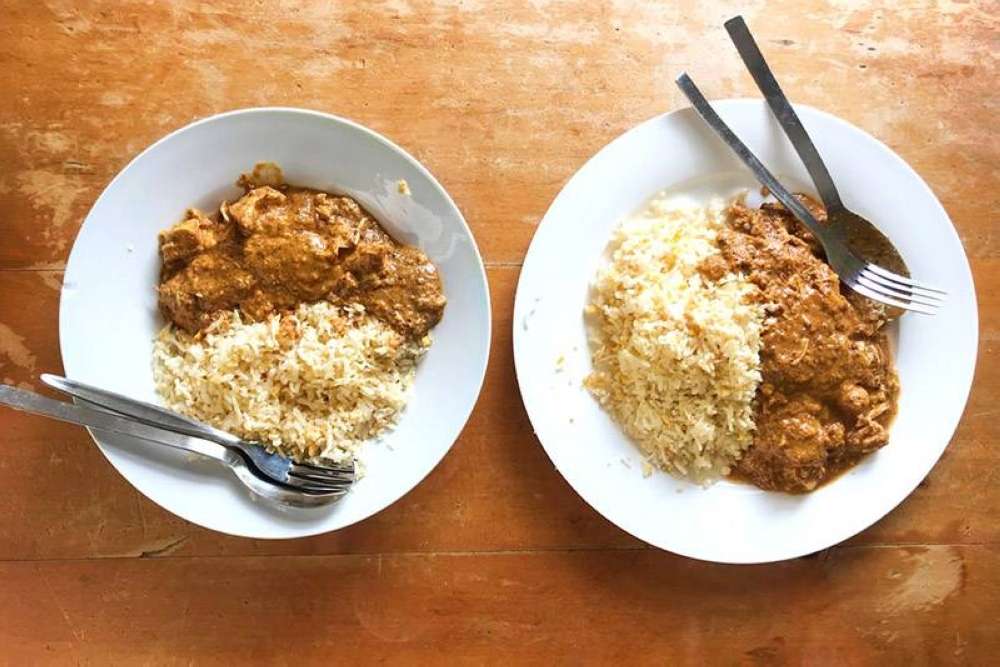
One of the reasons why creamy chicken curry and golden egg rice are leftover lifesavers is due to their ability to store well in the fridge or even the freezer. (This isn’t true for every dish. Noodles, for instance, don’t fare as well.)
Sealed in an airtight container, the curry should keep well in the fridge for two to three days. I generally prefer to freeze my curries though, so I needn’t worry about this shorter expiry date.
Simply thaw the frozen curry in the fridge overnight before reheating the next day.
For the curry paste, I have used Thai yellow curry paste as it is the mildest but feel free to use whichever style of curry you prefer.
I’ve added some belacan for fermented and umami notes but you may omit this if it’s too strong for your liking.
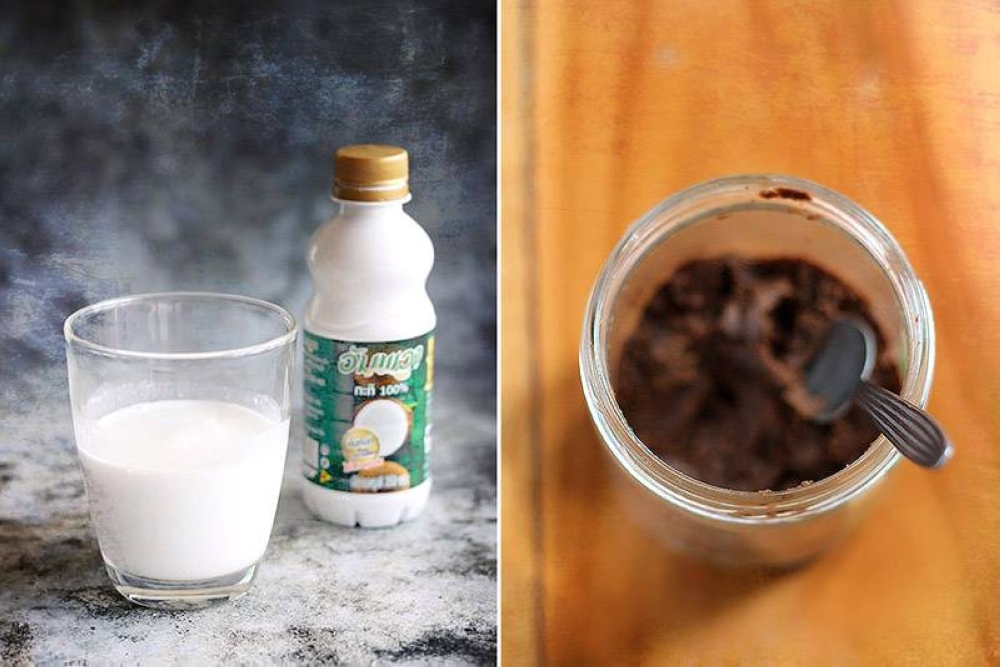
Ingredients
(A) Creamy chicken curry:
2 star anise
½ stick cinnamon, broken into small pieces
4-5 cloves
7-8 cumin seeds
3 tablespoons coconut oil
2 large white onions, sliced into rings
4 cloves garlic, minced
½ tablespoon belacan
4 tablespoons curry powder
250 grams Thai yellow curry paste
2 sprigs of curry leaves
1kg chicken thighs, cut into pieces
400ml water
200 ml coconut milk
Salt (optional)
(B) Golden egg rice:
2 large eggs
2 cups leftover cooked white rice, preferably parboiled rice
2 tablespoons coconut oil
1-2 tablespoons Chinese chilli oil
Fish sauce, to taste
Ground white pepper, to taste
Method
Begin by cooking the creamy chicken curry as this will take more time. Using a dry non-stick pan, lightly toast the star anise, cinnamon, cloves and cumin seeds until fragrant. Set aside to cool for a bit before pounding into a coarse powder using a pestle and mortar. This will be our dry spice powder.
Add the oil to a large pot and sauté the onions and garlic, tending to them carefully to prevent burning. When they start to soften, add the belacan, dry spice powder, curry powder, curry paste and curry leaves, and stir until aromatic.
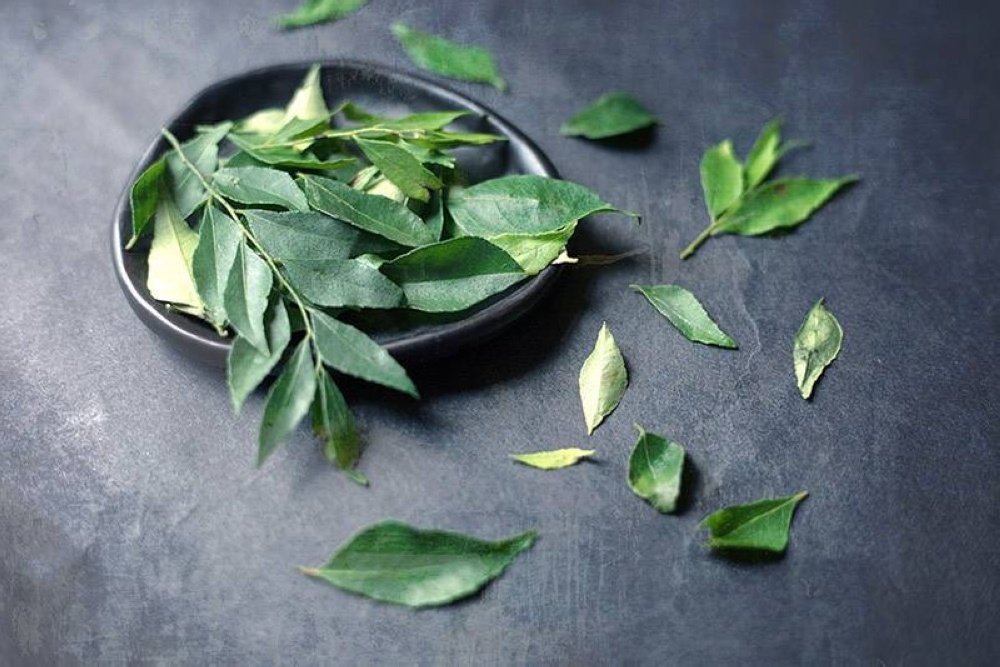
Now add the chicken thighs. Stir well to cover every piece of chicken with the spices and aromatics.
Add the water and bring to a boil. Once the liquid has come to a boil, cover with the lid and simmer for 20 minutes until the chicken is cooked.
Add the coconut milk, and bring the curry to a boil again. Depending on how thick you like the curry, you may continue to simmer for a few minutes to reduce the amount of liquid if necessary.
When the consistency of the curry is to your liking, turn off the heat. Taste and adjust seasoning with some salt, if necessary.
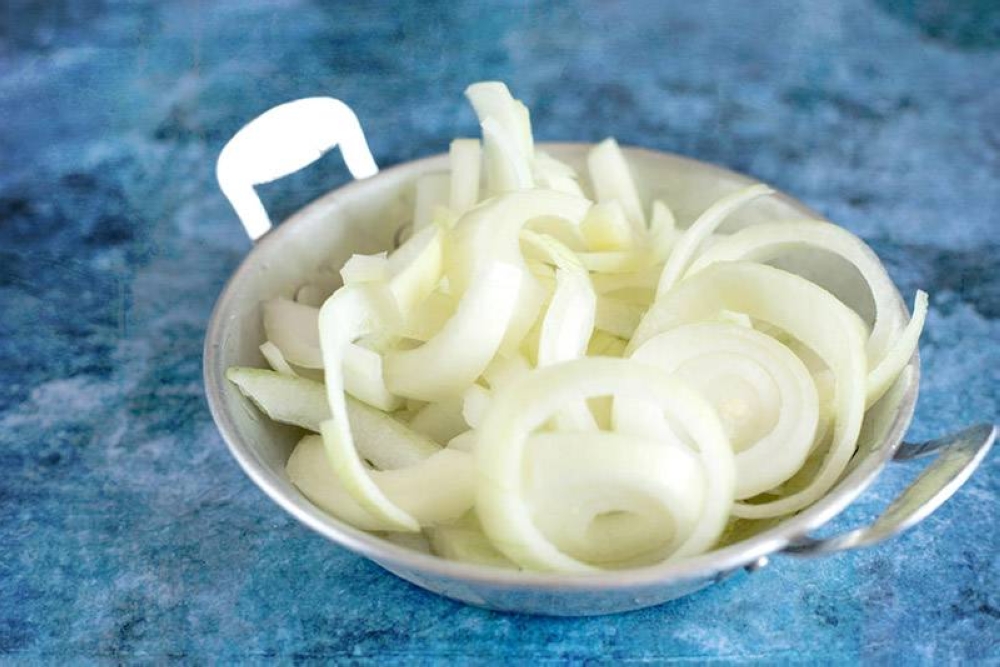
While the curry is simmering, you can get started on the golden egg rice. Beat the eggs until well combined, then pour over the leftover rice. Allow to soak for a few minutes.
Add the oil to a large wok set over high heat. When hot, add the Chinese chilli oil and stir-fry till fragrant.
Now add the egg-soaked rice. Never stop stirring to make sure you break up large clumps of rice and to prevent any from sticking to the bottom of the wok.
Season with a bit of fish sauce and ground white pepper to taste, then remove the wok from the heat. Dish the golden egg rice into individual plates. Ladle some of the creamy chicken curry on each plate and serve immediately.
For more Weekend Kitchen and other slice-of-life stories, visit lifeforbeginners.com.






















